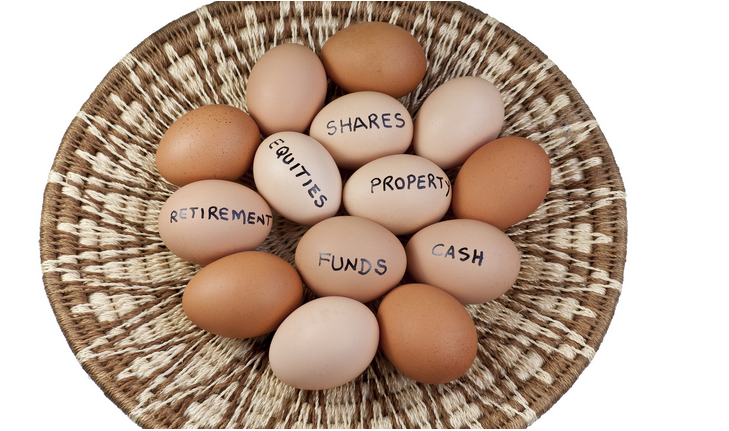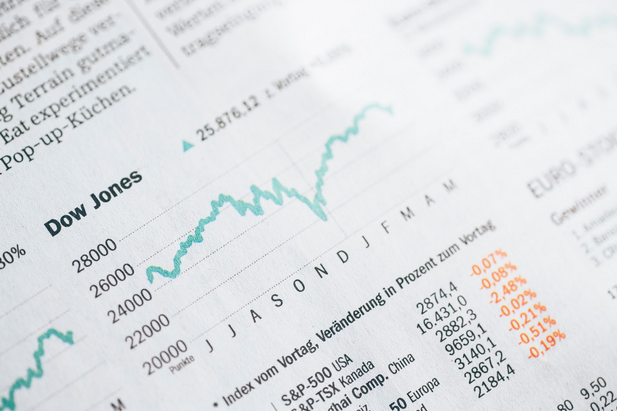
For many investors, particularly first-time investors, investing could look like a rather tasking endeavour that requires a lot of research. Let us simplify this a little by comparing two types of popular investments: trading in the stock markets and compare them to Ethis’ crowdfunding investment.
This comparison will be made with regards to risk management, monitoring of investments, ethical implications and diversification options. It will also help us answer the important question for avid investors; what is considered a worthy investment today? Especially in today’s economy where investment opportunities have been so varied; not very long ago, cryptocurrency was not viewed as an investment option, today even grandpas and grandmas own Bitcoin.
Related: Fixed Deposit vs Investing in Crowdfunding
How does the stock markets work and what are the risks involved?
If it’s one thing everyone can agree on, it’s that risks come hand-in-hand with investing; the most diligent and analytical person still cannot confidently say that their investment is completely risk-free.
After all, not even the best trained Olympian swimmers can battle the unpredictable ocean. But, one can still adjust by forecasting the weather and testing the waves.
Stock market investments may make profit-making look easy. Though many have tried to actively beat or predict the outcome of the stock market, only a few notable individuals have managed to do so.
Warren Buffett managed to take a $6,000 investment and create a net worth of US$ 101 billion, with the title of “the oracle of Omaha” thanks to a long record of successful investments as a result of smart selection of stocks and impeccable timing. So can anyone just pick up the trade and become the next Buffet?
Trading shares is much trickier than it seems, because the stock prices of a certain company may not follow logic—the markets tend to be affected by sentiment, even rumors around it. In today’s world, a simple tweet by an influencer can move markets. When a listed company releases its earnings report to the public, the price of the stock will either rise or drop depending on whether the company has met expectations on the street.
In some cases, even with a good earnings release, investors will still pull their investments out from a company’s stock if performance is perceived to be lower than expected, the controversy surrounding the public image of the company, and not uncommonly the occurrence of seemingly unrelated events such as political incidents or personal scandals in that industry.
With so much unpredictability, many stock market investors attempt to manage risks by analyzing a company’s economic prosperity and intrinsic value; looking into its holdings, profitability, revenue, liabilities and potential for growth, or patterns in the company’s price movements and trading signals. But there is also a sizable pool of amateur investors who follow personal hunches, random news and hearsay.
Timing adds to the risk in stocks and plays a major role in whether or not the investor will make a profit. You can choose to buy a stock at $5 a share, and choose to offload it after a due period for $10, only to discover that it turned into a $100 a share in a longer run. At the same time, the opposite can also occur.
Finally, we have all heard of the ever so dramatic stock market crash. Market crashes are caused by a trigger that leads to a downward spiral where panicked sellers rush to sell their stocks at ever-decreasing prices, causing prices to decline further and inciting even wider panic. Nobody wants to hang on to a fast-declining stock.
These factors make investing in stocks a quite risky venture; money earned could as easily be lost as gained. There are many non-random aspects to it and experience in this matter could help investors mitigate risks but mastery of the stock market remains elusive for most investors.
How does investment crowdfunding work and what are the risks involved?


Now let’s widen the scope and assess another asset class and its risks: ethical investing on Ethis’s crowdfunding platform.
Ethis offers access to investment crowdfunding opportunities in two ways: P2P crowdfunding and equity crowdfunding. The former allows investors to fund property and SME projects in Indonesia with social impact; while the latter allows investors to own a share in start-ups and SMEs.
Since 2014, Ethis has crowdfunded 1910+ investments into Indonesia and Malaysia from 47 countries. All investments are made online through a visible process that progresses online in full transparency. Projects or businesses are screened to ensure its Shariah-compliant and are then placed on the Ethis website. Investors then pool funds together to reach the target funding for the specific project or business. Once fully funded, funds are disbursed to the involved parties to be utilised for development activities or disbursed to the company.
Upon the successful completion of the project, investors get their profits for P2P investing. For investments made via equity crowdfunding, investors need to wait until an exit strategy is available (either through an initial public offering (IPO), buyout etc.) to get back their principal and returns.
Investing in any investment will always carry some risks, and the same applies to investment crowdfunding. There is, however, a layer of protection to manage such risks—Ethis works with local companies to screen projects from their members. Before reaching the Ethis platform, projects are scrutinized and the companies are evaluated based on previous track records.



The best thing about Ethis’ property investment, is that there are fixed assets that can be collateralised. While a business or listed company can crash and burn, fixed assets will typically maintain most of their intrinsic value even in a poor economy, and in most cases will increase in value over time.
Common collateral held is in the form of sale and purchase agreements which ascribe ownership of units or land to investors. In addition, post-dated cheques and personal guarantees are also provided by project owners. The main risk that investors always need to consider though, is the risk of delays.
Stock markets vs crowdfunding—which is more ethical?


While profit-making and growing capital used to be the central objective for investors, today, investors are also looking into investments that stand in line with their values and principles, or that bring wider benefits to society.
As per its name, Ethis seeks to implement universal ethics, implemented through the contracts of Islamic finance—a participatory form of finance based on Islamic concepts.
Investments on the Ethis platform are thus bound to a moral code. In application, this means that protecting both parties fairly is of high priority for Ethis, while undesirable sectors are excluded and social objectives are set.
Projects and businesses featured on our platform are those that bring about social impact—specifically the development of affordable property projects for low-income families, those within the agriculture sector, and projects that focus on SMEs, MSMEs and startups.
In contrast, it is more difficult to identify and separate ethics for stock market investments. Although there is a diverse range of stocks available on the market that carry different values and morals, a lot of the time this information is not readily available to investors on the stock exchange, and thus investors will need to do their research to gain such info.
These investments are remote from the investors and while investors can look through the company’s history of transactions and its public image, they would not necessarily be well-informed of the entirety of activities that the company runs.
Fundamentally, stock investors seeking an ethical investment would have to evaluate every stock option before setting forth and investing in it.
Related: Dos and Don’ts of Property Investment
The ease of tracking and monitoring your investments
The existing culture in stock market investing necessitates the investor to have an impersonal approach to the stocks that he invests in for them to run successfully. The general thinking is typical that emotions cause investors to make poor decisions.
In practice, investors deal with numbers on a board and watch them rise and fall. Only certain investors that meet certain investing portfolios criteria can have any role in their investments or gain deeper insights.
At Ethis, investors are informed of the processes and progress of the projects or businesses they invest in. Information about open projects is available with full transparency on-platform, with monthly updates directly from property developers on the ground.
This process begins with the financing phase of the projects where investors can witness the target amount being crowdfunded on the online platform. Upon successful fundraising, investors are then given updates on project progress or any new developments.
Additionally, investments are monitored on personal dashboards where investors can keep track of all past and ongoing investments made.
Either way, both could work because diversification of investment is important!


Diversifying your investments has always been a very important strategy for savvy investors.
When investors invest in a few different stocks, they stand a chance to manage some of the inherent risks of the market. It is less likely that all the stocks a person invested in will fall concurrently. Should one of the invested stocks drop in price, others may maintain or rise in price and potentially offset this loss.
The stock market, more than anything, is known for its diverse nature. Investors can enhance their portfolios by picking from the range of the available and an assorted number of stocks that vary in value and underlying business activities from different countries and sectors.
At Ethis, an investor is afforded similar diversification too. Through P2P crowdfunding, one could invest in projects that focus on crowdfunding property developments or projects that are more focused on the supply chain. All projects vary in the location, project owners and projected impact of each project. Investors can invest in multiple projects to spread out the risk.
Similarly, through equity crowdfunding, an investor can invest in businesses that are focused on agriculture or sustainability. Investors can invest in multiple businesses to spread out the risk as well.
On the flipside, you could invest via the stock market and investment crowdfunding at the same time! This allows you to spread your risk across different asset classes.
In conclusion, as an investor, you should gather information about your preferred type of investment and its alignment with your objectives and circumstances. You are encouraged to do your due diligence before jumping into the exciting world of investments.
This article was first published in September 2019 and has been edited and updated for accuracy and clarity. Edited by Anis Shakirah Mohd Muslimin.
Read more about Islamic Investing





Top Posts
Islamic P2P Crowdfunding Explained
How to Earn Halal Money? The Money Mindset
Halal Investments for Singapore Muslims? It’s time for a shake-up in the Islamic Investments scene.
Smart investment for making Halal money
3 Reasons Why Property Crowdfunding is the Smart Investment for You